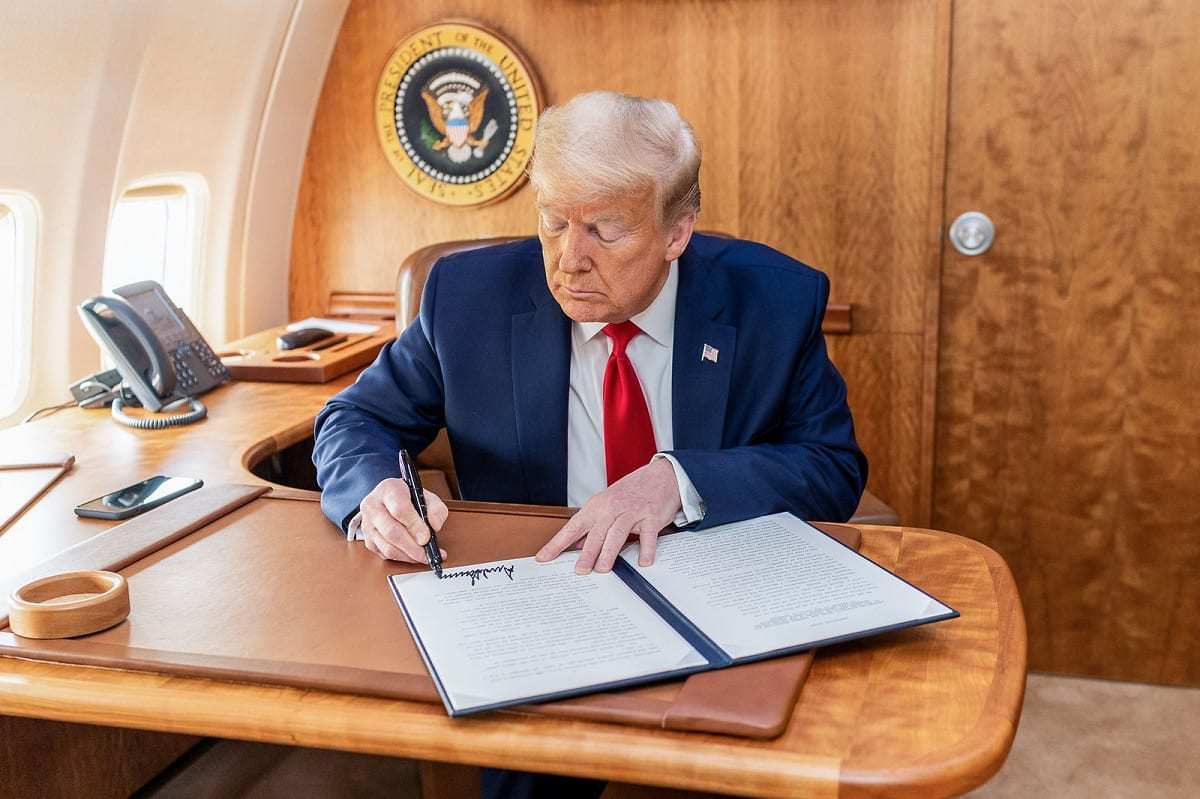Donald Trump Calls for Death Penalty for Convicted Drug Dealers – In a speech in Washington, D.C. on Tuesday, former President Donald Trump reiterated comments made earlier in the month about applying the death penalty to drug dealing charges.
During remarks at the America First Policy Institute, the former president expressed his view that convicted drug dealers should face much more severe punishment to deter crime and save lives.
“The penalties should be very, very severe,” the former president said. “If you look at countries throughout the world, the ones that don’t have a drug problem are ones that institute a very quick trial death penalty sentence for drug dealers.”
Trump admitted that the plans “sounds horrible” but insisted that executing a drug dealer could “save 500 lives.”
“It’s terrible to say, but you take a look at every country in this world that doesn’t have a problem with drugs, they have a very strong death penalty for people that sell drugs,” Trump said.
Trump made the same suggestion during a speech in Las Vegas on July 8, expressing his anger at the rise of violent crime in American cities.
“To put it simply, we are a nation in decline. We are a failing nation,” Trump said, adding that the country was in the grip of a “deadly wave of lawlessness and chaos.”
What Nations Is Trump Talking About?
While the former president wasn’t clear about the countries he was referring to, it’s possible he was referring to Brazil.
Populist president Jair Bolsonaro has long promoted harsh penalties for drug dealers and criminals, starting during his campaign in 2018. During a speech in early 2018, Bolsonaro famously said that a “good criminal is a dead criminal.”
After winning the election, Bolsonaro followed through on his promise to use the military and the police to crack down on criminals in the favelas – Brazil’s slums – and drug dealers across the country. A raid in Rio de Janerio in May, 2021, showed that the Brazilian president was willing to follow through on those promises, with a raid involving armored helicopters and military vehicles leaving 29 people dead. Some 200 heavily armed officers were used in the raid, which was the deadliest police operation in the city’s history.
Dozens of other countries also impose the death penalty for drug smuggling, though in most countries, executions are rare. Only in Malaysia, Vietnam, Iran, China, Singapore, and Saudi Arabia are drug offenders known to be routinely executed.
While Trump’s comments have since been the subject of mockery and outrage, it’s worth noting that the former president did not advocate the extreme measures taken by Bolsonaro. Moreover, the fact that so many countries with strict drug smuggling laws rarely see executions occur could indicate that the policy serves as a more effective deterrent than current sentencing guidelines in the United States.
Jack Buckby is a British author, counter-extremism researcher, and journalist based in New York. Reporting on the U.K., Europe, and the U.S., he works to analyze and understand left-wing and right-wing radicalization, and reports on Western governments’ approaches to the pressing issues of today. His books and research papers explore these themes and propose pragmatic solutions to our increasingly polarized society.

